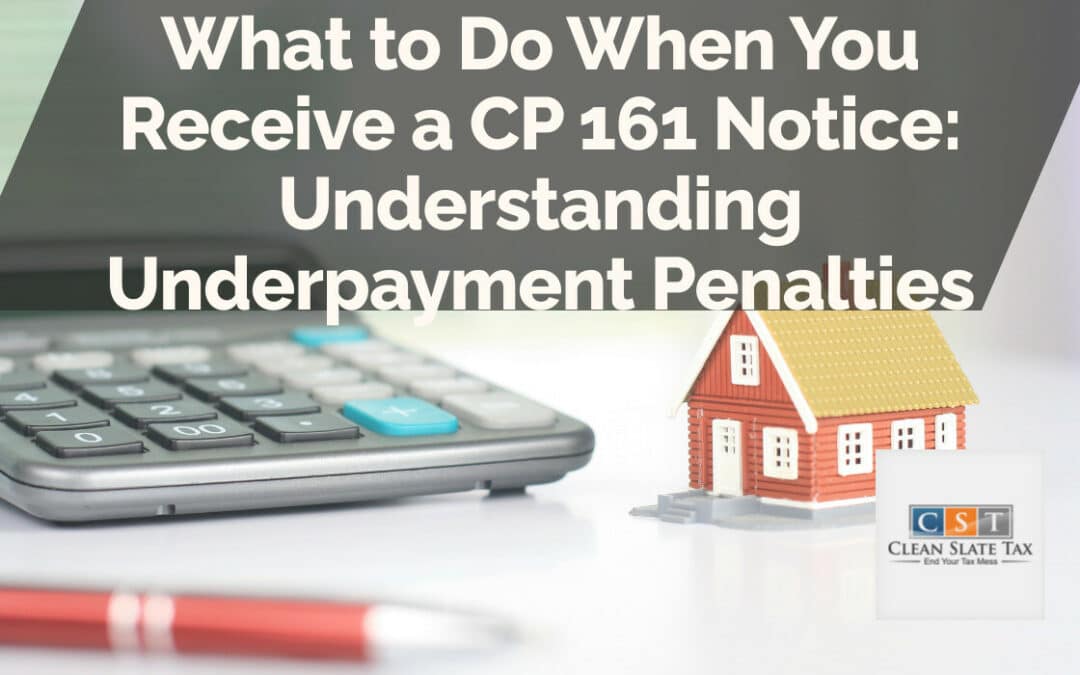If you’ve received a CP 161 Notice from the Internal Revenue Service (IRS), you may be feeling a bit overwhelmed and confused. This notice signals that you’ve underpaid your estimated tax or have a small balance due. Don’t panic! This is definitely something you can resolve. Although it may seem daunting, understanding its implications and how to address them can help you get through the process with minimal stress.
What is a CP 161 Notice?
A CP 161 Notice is a tax notice from the IRS alerting taxpayers that they’ve underpaid their taxes. This usually happens when there’s an outstanding balance due after processing a taxpayer’s return. The notice is inclusive of penalties and calculated interest incurred on the unpaid amount.
Why did I receive a CP 161 Notice?
Receiving a CP 161 Notice implies that you owe additional taxes to the IRS. This can be due to underestimating your tax obligations, errors in computing the tax, or failing to file or pay the tax on time. The aim of this notice is to notify you about the outstanding amount, which needs to be settled to prevent further accruements of penalties and interest.
What are Underpayment Penalties?
Underpayment penalties are charges or fines levied on taxpayers who fail to pay the correct amount of their estimated tax, or if they fail to pay any instalments of the due amount on time. The penalty is calculated from the due date of the estimated tax payment until the date of full payment or the due date of the tax return, whichever comes first.
How to Respond to a CP 161 Notice?
Reacting to a CP 161 Notice in a timely and diligent manner is crucial. Here are some steps to guide you:
- Review the notice thoroughly. Ensure that all personal information is correct.
- Verify the amount due. Cross-check with your records to ascertain the accuracy of the tax amount owed.
- Pay the amount. You can choose to pay online, phone, or by mail. If you can’t pay it all at once, you may qualify for a payment plan.
- Consult with a tax professional if you disagree with the amount stated in the notice or if you find the issue too complex to handle yourself.
Frequently Asked Questions (FAQs)
Can penalties be removed?
Yes, the IRS may provide penalty relief if you have reasonable cause for not complying with tax obligations, such as a natural disaster, death in the family, or serious illness.
How can I avoid underpayment penalties in the future?
Ensuring you make accurate estimates and pay your taxes on time can help you avoid underpayment penalties. Consult with a tax professional to help you make accurate estimates.
In conclusion, while receiving a CP 161 Notice from the IRS may initially be distressing, it can be managed effectively with correct understanding and careful action. Always remember to consult with a tax professional if you need further assistance.



